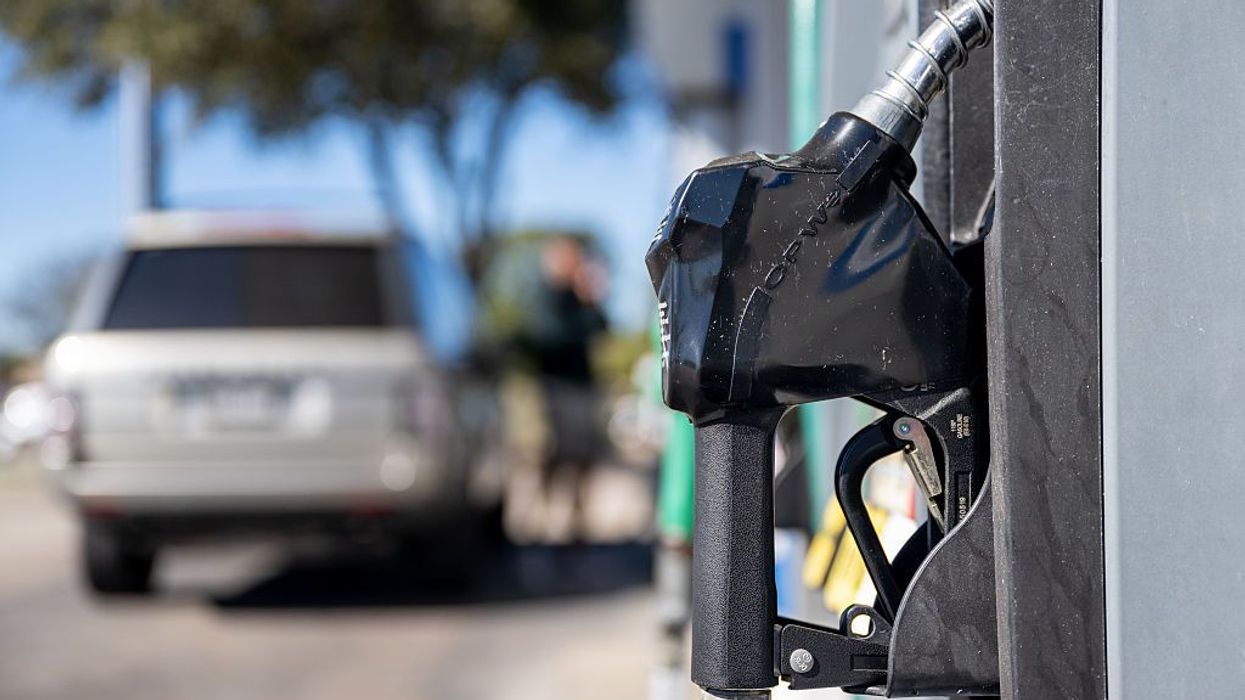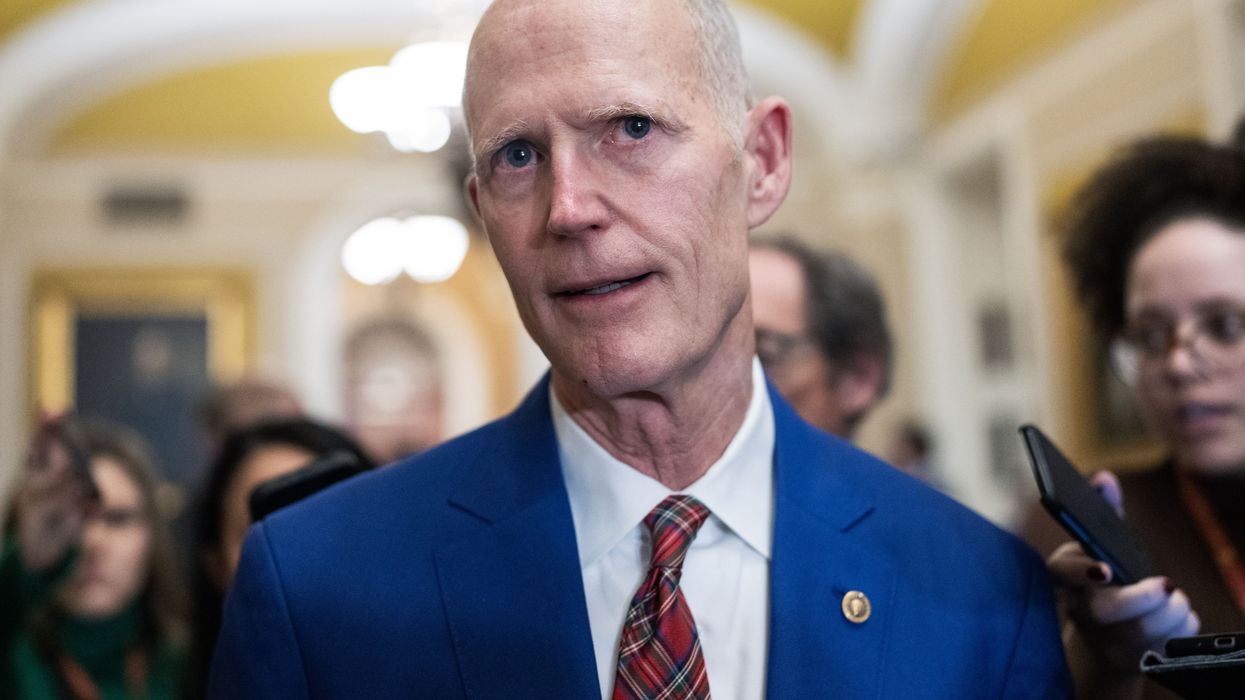May, 24 2012, 01:21pm EDT

For Immediate Release
Contact:
Kirsten Stade (202) 265-7337
Romney Hog-Tied Pollution Prosecution
Enforcement Obstruction, Disruption and “Kill the Lawyers” Style in Massachusetts
BOSTON
As Massachusetts Governor, Mitt Romney routinely impeded prosecution of pollution and public health laws through policies designed to tie the hands of police, inspectors and enforcement attorneys, according to Public Employees for Environmental Responsibility (PEER). Besides an openly pro-corporate tilt, disruptive reorganizations Romney ordered created chaos in ongoing cases.
From his first days as Governor, Romney targeted environmental enforcement by -
- Laying off eco-attorneys, moving those remaining into a central office, thereby interrupting scores of cases, and stripping these attorneys of civil service protections making them fire-able at will;
- Limiting the state police charged with enforcing hazardous waste and public health/safety laws by not filling vacancies, leaving a leadership void and discouraging actions against corporate violators; and
- Closing a major regional office which later had to be reopened due to the precipitous drop in environmental inspections from staff having to travel long distances.
"The Romney environmental enforcement philosophy was Shakespearean - first, kill all the lawyers," stated New England PEER Director Kyla Bennett, a lawyer and biologist formerly with the U.S. Environmental Protection Agency (EPA), noting that making these attorneys into pleasure appointments effectively put case decisions under political control. "Governor Romney did more to politicize pollution prosecution decisions than any other chief executive in the history of the Commonwealth."
Besides seeking to centralize control of eco-enforcement, Romney officials also tried to limit access to information about enforcement. For example, Romney officials blocked the release of a report urging a major upgrade in resource enforcement by the Massachusetts Environmental Police, which enforces anti-pollution, wildlife protection and marine safety laws. Perhaps not surprisingly, a PEER survey of eco-police found high percentages reporting interference with enforcement, retaliation for pursuing cases and a belief that environmental enforcement was being weakened.
Similarly, Romney overrode objections to closing a regional office of the state Department of Environmental Protection. He was forced to re-open that same regional office three years later when it became undeniable that the added travel cost for inspectors and enforcement staff exceeded the small savings of shutting the office.
"During his tenure in Massachusetts, Governor Romney showed little interest in or aptitude for protecting our citizens and resources from environmental peril," Bennett added. "These same policies replicated on a national level would eviscerate the effectiveness of our pollution and public health laws."
PEER protects public employees who protect our environment. We are a service organization for environmental and public health professionals, land managers, scientists, enforcement officers, and other civil servants dedicated to upholding environmental laws and values. We work with current and former federal, state, local, and tribal employees.
LATEST NEWS
Trump Ripped for Multilevel Stupidity of Scrapping Automobile Efficiency Standards
"In one stroke, Trump is worsening three of our nation’s most vexing problems," said one critic.
Dec 03, 2025
President Donald Trump's administration drew criticism from climate advocates on Wednesday for taking a hatchet to fuel efficiency standards aimed at reducing US gas consumption and mitigating the damage done by human-made climate change.
The National Highway Traffic Safety Administration (NHTSA) has proposed slashing former President Joe Biden's fuel economy requirements for new cars down from 50.4 miles per gallon down to just 34.5 miles per gallon on average by 2031.
NHTSA claims that the change in fuel-efficiency standards would slash up-front costs to cars by roughly $900, although it acknowledges that this would also increase US gasoline consumption, which could mean higher prices at the gas pump.
The move has the support of America's major automobile manufacturers, who said the new rules would give them more flexibility. Ford CEO Jim Farley, for instance, told the Washington Post that the rule change means that the auto industry "can make real progress on carbon emissions and energy efficiency while still giving customers choice and affordability."
Many environmental advocates were quick to hammer Trump for making what they described as a shortsighted policy decision that cost Americans more over the long run in terms of both higher gas prices and carbon emissions.
Kathy Harris, director of clean vehicles at the Natural Resources Defense Council, said that Trump is "sticking drivers with higher costs at the pump, all to benefit the oil industry" and predicted that "drivers will be paying hundreds of dollars more at the pump every year if these rules are put in place."
The rule change also drew a scathing review from Dan Becker, director of the Center for Biological Diversity's Safe Climate Transport Campaign, who said that the Trump administration's actions were self-destructive on a number of levels.
"In one stroke, Trump is worsening three of our nation’s most vexing problems: the thirst for oil, high gas pump costs, and global warming," he said. "Trump’s action will feed America’s destructive use of oil, while hamstringing us in the green tech race against Chinese and other foreign carmakers. The auto industry will use this rule to drive itself back into a familiar ditch, failing to compete."
The move on fuel-efficiency standards wasn't the only climate-related policy move the administration made this week, as Bloomberg reported on Tuesday that the US Department of Energy also began unwinding a Biden-era program aimed at decarbonizing the building sector by allowing for the certification of "zero emissions" buildings.
Amneh Minkara, deputy director of Sierra Club's Clean Heat Campaign, said that repealing this program was particularly nonsensical since it was a voluntary standard that "did not place any additional burden on builders or owners," and instead represented "a clear way to meet consumer demand for pollution-free buildings."
"Defining what makes a building ‘zero emissions’ gives consumers certainty that when builders or sellers say a building is clean that it actually meets a specific set of criteria," Minkara emphasized. "It also would reduce energy waste, at a time when energy demand is at an all-time high, and lead to lower utility bills."
Keep ReadingShow Less
New Face of GOP Healthcare Fix Is Senator Linked to Largest Medicare Fraud Scheme in US History
Sen. Rick Scott is warning fellow Republicans of a "slow creep" toward single-payer healthcare if they don't craft an alternative to the Affordable Care Act.
Dec 03, 2025
US Sen. Rick Scott, former CEO of the company that was at the center of the biggest Medicare fraud scheme in American history, has emerged as the most vocal Republican proponent of healthcare reform, warning his fellow GOP lawmakers that continued refusal to engage with the issue risks a "slow creep" toward single-payer healthcare.
On Thursday, according to Axios, Scott (R-Fla.) is "convening a group of House and Senate conservatives on Capitol Hill to pore over fresh polling to develop GOP alternatives to the Affordable Care Act."
Late last month, Scott unveiled his own proposal titled the More Affordable Care Act, which would keep ACA exchanges intact while creating "Trump Health Freedom Accounts" that enrollees could use to pay for out-of-pocket costs. Scott's plan, as the health policy group KFF explained, would allow enhanced ACA tax credits to expire and let states replace subsidies in the original ACA with contributions to the newly created health savings accounts.
"Unlike ACA premium tax credits, which can only be used for ACA Marketplace plans, the accounts in the Scott proposal could be used for any type of health insurance plan, including short-term plans that can exclude people based on preexisting conditions," KFF noted. "States could also waive certain provisions of the ACA, including the requirement to cover certain benefits."
"While ACA plans would still be required to cover people with preexisting conditions under the Scott proposal," the group added, "it is likely that the ACA marketplace would collapse in states that seek a waiver under his approach."
Last month, amid the longest government shutdown in US history, Scott leapt at the opportunity to champion possible Republican alternatives to the healthcare status quo, despite his ignominious record.
In 2003, the US Justice Department announced that the hospital chain HCA Inc.—formerly known as Columbia/HCA—had agreed to pay hundreds of millions of dollars in penalties and damages to settle what the DOJ characterized as the "largest healthcare fraud case in US history."
Scott resigned as CEO of Columbia/HCA in 1997, days after federal agents raided company facilities as part of the sweeping fraud probe. The federal government and company whistleblowers said the hospital giant "systematically defrauded" Medicare, Medicaid, and other healthcare programs through unlawful billing and other ploys.
"In 2000, Scott invoked the Fifth Amendment 75 times in a deposition as part of a civil case involving his time leading the company," Florida Phoenix reported last year. A former HCA accountant accused Scott, who was never directly charged in the case, of leading "a criminal enterprise."
Scott later served two terms as governor of Florida and is now one of the wealthiest members of Congress, and he maintains he was the victim of a politically motivated DOJ investigation.
"The Clinton Justice Department went after me," Scott complained during his 2024 Senate reelection campaign.
It's unclear whether Scott's healthcare ideas will gain sufficient traction with President Donald Trump and Republican lawmakers, who have seemed content to bash the existing system without proposing anything concrete or viable to replace it. Trump was supposed to unveil his own healthcare proposal last month, but the White House pulled the plug amid GOP pushback.
Some members of the Democratic caucus, meanwhile, are making the case for the very system Scott is warning his colleagues about.
"Let’s finally create a system that puts your health over corporate profits," Sen. Chris Van Hollen (D-Md.) said earlier this week. "We need Medicare for All."
Keep ReadingShow Less
‘Political Stunt Wrapped in Badges’: New Orleans Readies Resistance as Trump Operation Begins
“Our city is not a stage for political theater," said the Democratic congressman representing New Orleans. "Our people are not props."
Dec 03, 2025
The Trump administration on Wednesday launched a major operation against what it said are "criminal illegal aliens" in New Orleans but that critics contend is political theater targeting what the Louisiana city's mayor-elect called people “just trying to survive and do the right thing."
The Department of Homeland Security (DHS) said in a statement that it launched Operation Catahoula Crunch—which some Trump administration officials are also calling "Swamp Sweep"—because New Orleans is a sanctuary city that refuses to cooperate with the anti-immigrant crackdown ordered by President Donald Trump.
The blitz—which began on the same day as a similar operation in Minneapolis and follows federal invasions of cities including Charlotte; Chicago; Los Angeles; Memphis; Portland, Oregon; and Washington, DC—is expected to involve at least hundreds of federal agents and National Guard troops and reportedly aims for 5,000 arrests in Louisiana and Mississippi.
"Sanctuary policies endanger American communities by releasing illegal criminal aliens and forcing DHS law enforcement to risk their lives to remove criminal illegal aliens that should have never been put back on the streets," Assistant Homeland Security Secretary Tricia McLaughlin said Wednesday.
While McClaughlin claimed the targets of the operation will be "monsters" that "include violent criminals who were released after arrest for home invasion, armed robbery, grand theft auto, and rape," examination of detention statistics of similar operations in other communities has shown that a large percentage of those swept up have no criminal record.
Academic studies and analyses by both left- and right-wing groups and have repeatedly affirmed that undocumented immigrants commit crime at a dramatically lower rate than native-born US citizens. The libertarian Cato Institute last week published data showing that nearly three-quarters of the 44,882 people booked into Immigration and Customs Enforcement (ICE) custody since October had no criminal conviction and just 5% had been convicted of violent crimes.
Detention data published last month by the Department of Justice revealed that just 16 out of 614 people arrested in the Chicago area during DHS's Operation Midway Blitz had criminal histories that present a “high public safety risk.”
Elected officials representing New Orleans called the DHS operation an unnecessary and unwelcome stunt.
“It’s one thing if you would have a real strategic approach on going after people... who have criminal felonies or are being accused of some very serious and violent crimes. But that’s not what the public is seeing,” Democratic New Orleans Mayor-elect Helena Morena told the Washington Post on Wednesday.
“They’re seeing people who are just trying to survive and do the right thing—and many of them now have American children who are not causing problems in our community—treated like they are violent, violent criminals," she added.
Moreno's website published a "know your rights" resource page with tips from the National Immigrant Justice Center—a move that could possibly run afoul of a state law cited by Republican Louisiana Attorney General Liz Murrill to threaten felony prosecution of people who nonviolently resist Trump's crackdown. On Wednesday, the American Civil Liberties Union filed a federal lawsuit arguing that the law is a violation of the right to free speech.
Congressman Troy Carter (D-La.) said in a statement Tuesday that “if the administration truly wants to support public safety in New Orleans, they can help us recruit and retain well-trained local officers, invest in modern policing tools, and build transparent partnerships with city and parish leaders."
New Orleans welcomes partnership. We do not welcome occupation.What we are seeing unfold in our community is not public safety; it is a political stunt wrapped in badges, armored vehicles, and military uniforms.
[image or embed]
— Congressman Troy A. Carter, Sr. (@reptroycarter.bsky.social) December 3, 2025 at 6:35 AM
"Dropping armed federal agents and National Guard troops into our communities without coordination is not cooperation—it is chaos," Carter continued. “As Congressman for New Orleans, I want to be clear: We will always stand for the rule of law. We will always stand for safe communities. And we will always stand against tactics that terrorize families and undermine public trust."
“Our city is not a stage for political theater," he added. "Our people are not props. If the administration wants to be a partner, then act like one; share the plan, respect local law, and work with us, not around us.”
Hundreds of New Orleans residents took to the streets Monday night despite cold, heavy rain to protest the impending DHS operation. Demonstrators shared umbrellas and held signs showing support for immigrants. They chanted messages, including "No ICE! No fear! Immigrants are welcome here!" and "Chinga la Migra"—roughly translated as "Fuck the Border Patrol."
“We have to fight for the rights of everyone. I’m out here to support the immigrant community because it’s an integral part of New Orleans. New Orleans was built by immigrants," protester Jamie Segura told Gambit.
Addressing the crowd at Monday's rally, resident Mitch Gonzalez said: “This is my home. My trans sister was kidnapped and taken from me. Now she has to fight from Mexico, not even her home country, because they’re snatching people.”
Last night, hundreds marched through the streets of New Orleans, in the pouring rain, chanting “No ICE.”
If people are willing to storm the streets after dark in a downpour, it tells you everything about how fed up this country is with state-sanctioned cruelty. pic.twitter.com/kF5KjpU2SX
— Brian Allen (@allenanalysis) December 2, 2025
As New Orleans residents anticipated the impending operation, mutual aid groups kicked into action in defense of immigrant communities, citing effective rapid response efforts in Chicago.
“What we’ve learned is that even a street witness who is not recording makes these interactions less traumatic and less violent,” Beth Davis, press liaison officer at Indivisible NOLA, told the Washington Post on Wednesday. “So we need to get eyes on these people.”
The New Orleans branch of Democratic Socialists of America—which is hosting training sessions—said ahead of the federal blitz: "We call upon all of New Orleans to get organized and resist this fascist occupation. Protect your neighbors and make these troops and federal agents feel unwelcome in every part of our city."
Other Orleanians prepared by closing or displaying signs telling the federal invaders that they are not welcome.
“We’re going to make sure that any hotel that they stay at, any neighborhood that they try to terrorize, we’re going to bring as many people there to stop them in their tracks, whether it’s in New Orleans, Los Angeles, Chicago—anywhere in this country,” Antonia Mar of Freedom Road Socialist Organization told Verite News during Monday's protest.
Suggesting that the crackdown could backfire, Mar added that "if there’s one thing Trump does well, he gets people organized against him."
Keep ReadingShow Less
Most Popular


